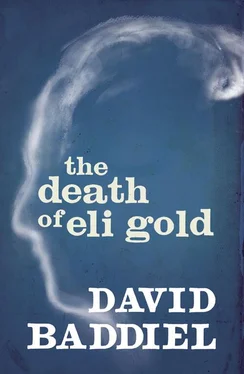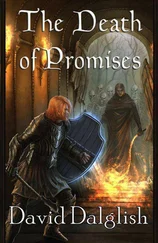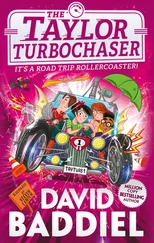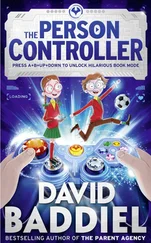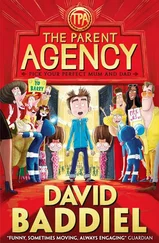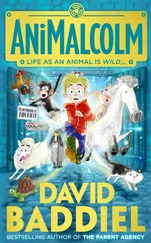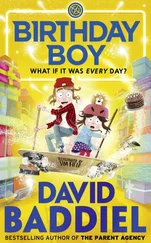‘Because,’ he had replied instantly – always at his quickest when pressed on his own neuroses: the nearest Harvey comes to his father’s speed of mind is his ability always to have an answer for why this or that suggestion will not cure him – ‘when I see a beautiful painting, I have no desire to touch or kiss or lick or fuck the canvas.’
Harvey remembers the face of Therapist 4 at this moment. She was his first woman – chosen deliberately, in the hope that that would be the key – and sixty-three, also a deliberate choice, and had had a minor stroke that caused one side of her mouth to fall faintly out of symmetry with the other. Physiotherapy had got her facial muscles back to about 80 per cent of their pre-stroke strength, but her lips still had something of the look of a falling graph and, in response to this particular remark, seemed to fall just a millidegree further. Harvey took this to mean that he had stumped her, and felt, despite the fact that he was paying her to cure him and therefore not to be stumped, a small thrill of triumph.
‘Are you OK, sir?’ says the taxi driver, a Sikh. Harvey looks away from the window; again he has the impulse to delineate the thousand ways in which he is not. But he says:
‘Fine. Yes. Why do you ask?’
‘You were sighing?’ His accent is Bengali, but the intonation, going up at the end of the sentence to make the observation a question, is American.
Harvey looks at the ID card in the right-hand corner of the glass partition that separates passenger from driver: the words Jasvant Kirtia Singh and a face, most of it covered by turban and beard.
‘Sorry, I didn’t realize …’
‘It is someone you’re seeing at the hospital?’
Harvey looks at Jasvant Kirtia Singh’s eyes in the rear-view mirror. Animated from their I’m-Not-A-Terrorist impassivity on his ID, they are small black beads, birdlike, but framed by eyebrows gently suggesting both enquiry and a willingness to retreat if the passenger does not wish to talk.
‘My father.’
‘He is unwell?’
‘Yes.’
‘I hope he gets better soon …?’
Harvey wonders what to say to this. It has happened a few times, particularly early on, before the obituary writers began sharpening their pencils (or, rather, Googling ‘Eli Gold’): he would tell someone that his father was ill, and they would offer some encouraging words indicating hope of a return to health, and Harvey would have to face saying, No. He isn’t going to get better. The next stage of the conversation would then be stunted, and Harvey would feel at some level rude for having burdened them with this information. It crosses his mind, therefore, just to tell the taxi driver that his father is indeed on the mend – after all, he is not someone who needs to know the truth, nor is ever likely to find out that he has been lied to anyway. But Harvey doesn’t: even the tiniest lies will up his already heightened anxiety levels.
‘I don’t think so …’ he says, and the Sikh’s eyes hold his for a second, then move up and down as the back of his turbaned head nods in sad understanding.
‘I am sorry,’ he says, for the first time not framing the statement as a question.
Harvey is grateful, however, to have his mind brought back to his father. He feels, with his gratitude, a stab of guilt that he should be thinking about his sense of exclusion from the huge variety of female flesh out there so soon after seeing his father on his deathbed for the first time. Harvey knows what the world demands: there are certain things, of which the death of your father is certainly one, that must drive all other thoughts from your head, filling your sky as effortlessly as a wide-winged black eagle, but the truth – Harvey’s truth, yes, but he senses that here, for once, he is not alone – is that the widower at his wife’s funeral is for a second snagged by the breasts of the female mourner standing on the other side of the grave, straining against her tight black jacket; that the father at his son’s hospital bed is distracted, against all his will, by the curving back view the nurse creates as she reaches up to change the little boy’s drip. It is the source of men’s deepest shame, the ever-presence of the penis; or, to be more exact, the incongruity of the penis, its continued presence on those occasions when it would be so clearly in accordance with every idea of human dignity for it to be absent.
Harvey tries his best, though. He attempts to use his short-term memory – the pictures in his head of where he has just been – to drive himself into mental propriety. He thinks hard: he focuses . But not in that modern self-help, how-to-improve-your-golf-swing way – he actually does his best to make his mind’s eye like a camera lens, closing telescopically on the world around him to see only the immediate past.
Eli’s room had been in Geriatrics, at the end of a long, bright corridor, on whose walls were hung a number of photographs commemorating the opening of the new Geriatric Medicine Facility, by Martha Stewart, in 2007. Outside the room itself stood a hulking security man, both black and dressed in black. He held one huge finger, his index, to his ear, pressed against a Bluetooth cellphone earpiece. ‘ID, sir,’ he said, managing to pack into those two words all his adamantine non-negotiability on this requirement
Harvey’s stomach fell. He hadn’t, of course, considered that access to his father’s hospital room might be controlled: a stab of resentment towards Freda for not mentioning it went through him. He could have brought one of his two passports, but they were both in his bum bag, presently in his hotel room, flung over the twin bed he had chosen not to sleep in – a decision he had remained uncertain about throughout the long jet-lagged night, even swapping beds for twenty minutes at around 5 a.m., hoping that the other mattress might be soft enough to grasp what little oblivion the dark still offered.
‘I don’t …’ he began, and saw the security man’s wide face settle into stone. ‘Look. I’m his son. I’m Eli Gold’s son.’
‘Can you prove that, sir?’
This took Harvey aback. He realized that without some kind of documentation, he could not. He did look a bit like his father – they shared fleshy, porous noses, and skin that looked as if it might need shaving four times a day – but not having seen him as he was at present he could not even confidently claim a resemblance. And as for any other inheritance: well, Harvey possessed neither the genius nor the charisma, although he wondered why he was thinking this, as he was not sure how he would demonstrate either in the hospital corridor, and even if he could, doubted they would count as an access-all-areas code.
‘I’ve got a credit card …’
‘I’ll need a photo-ID, sir. There’s a lot of journalists and crazy people might want to get into this room.’
‘Yes,’ Harvey said, and then remembered that he did have his driving licence on him. He unbuttoned his jacket – because, despite it being forty degrees in Manhattan, he was wearing a dark blue, buttoned jacket; uncertain and jet-lagged this morning he had decided that the occasion of going to see his dying father necessitated some formality – and reached into the inside pocket for his wallet. He scrabbled through the variety of useless cards in the leather slits – how many fucking membership cards for defunct DVD rentals did he own? – until he spotted his shrunken head on the pink picture card. Handing it to the security guard, Harvey felt nervous, under pressure; the moment came into his mind when Jimmy Voller, the swarthy Brooklyn hero of Eli’s brutal third novel Cometh the Wolf , has to produce his passport at the door of an East Berlin brothel to persuade the madam that he is neither Turkish nor Moroccan, the two nationalities she has decided to bar entry to.
Читать дальше
